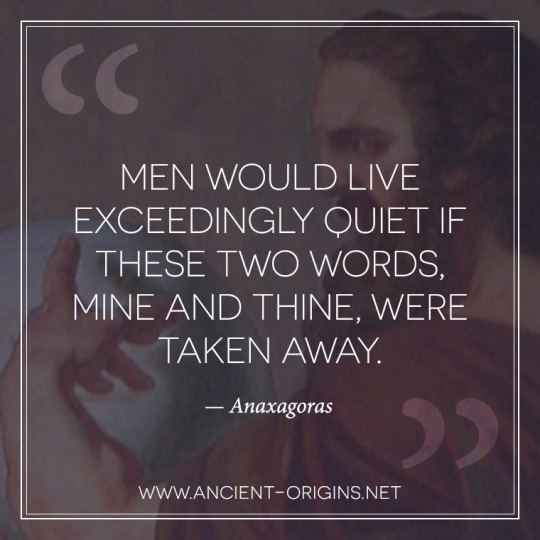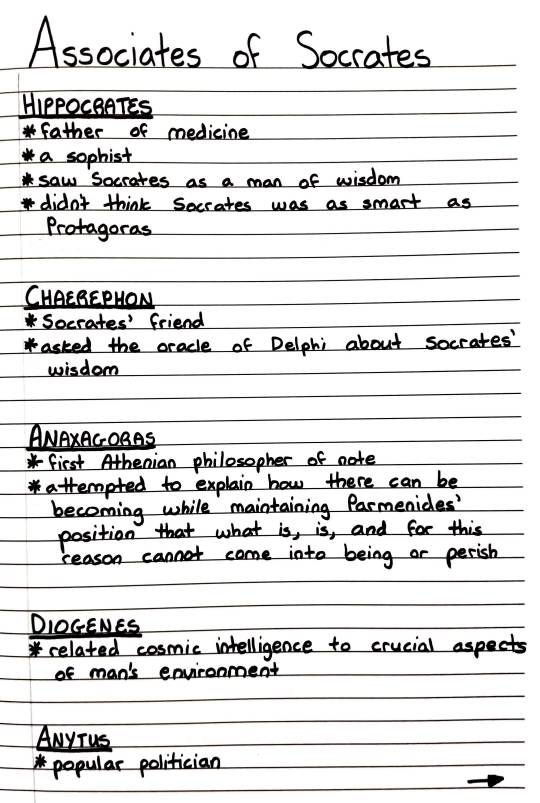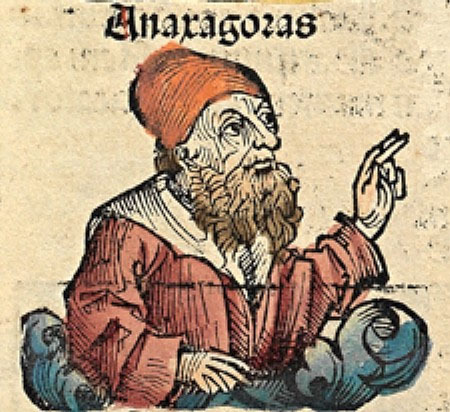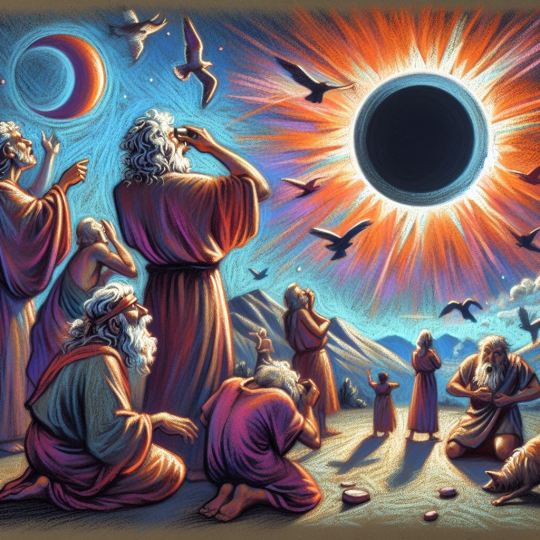#anaxagoras
Text

Quote of the day...
32 notes
·
View notes
Text
FE OC Week - Day 1: Introductions

Time flows like a river and I am drowning in it, but my Crest doesn't let me die. Kill me, King Dimitri... please.
Anaxagoras is a character from Fire Emblem Three Houses and a playable character (as Ksenia) from Fire Emblem Warriors: Three Hopes. She's the queen of the Holy Kingdom of Faerghus and Dimitri's wife. Anaxagoras bears a Major Crest of the Crescent Moon and uses Magic as her main weapon. Only Those Who Slither in the Dark call her by the Agarthan name, the only one who knows it is Dimitri.
Since she has a longass bio, you can read the full thing in this post!
idk if I'll be able to finish the week, but I hope you like her. :3
@fe-oc-week
38 notes
·
View notes
Text
Associates of Socrates


Patreon
#studyblr#notes#history#historyblr#western civ#western civilization#western civ 1#western civilization 1#socrates#ancient greece#greece#greek philosophy#philosophy#philosophers#introductory philosophy#greek philosophers#philosophers of ancient greece#ancient greek philosophers#lycon#meletus#diogenes#hippocrates#anytus#anaxagoras#chaerephon#ancient greeks#ancient history#greek history#ancient greek history#world history
9 notes
·
View notes
Text
Epitaph for a Presocratic Philosopher
Anthologia Palatina 7.94 (author and date unknown)
Here lies one who came closest to the bounds
Of truth about the heavens above: Anaxagoras.
ἐνθάδε, πλεῖστον ἀληθείας ἐπὶ τέρμα περήσας
οὐρανίου κόσμου, κεῖται Ἀναξαγόρας.

Anaxagoras, Jusepe de Ribera, 1636
#classics#tagamemnon#Ancient Greece#Greek#Ancient Greek#Greek language#Ancient Greek language#langblr#Greek translation#Ancient Greek translation#poem#poetry#poetry in translation#Greek poetry#Ancient Greek poetry#ancient history#ancient philosophy#Presocratics#Anaxagoras#epigram#epitaph#couplet#elegiac couplets#Anthologia Palatina#Palatine Anthology#Anthologia Graeca#Greek Anthology#Jusepe de Ribera#Jose de Ribera
100 notes
·
View notes
Quote
Nothing is completely separated off or dissociated one from the other except mind.
Anaxagoras, Fragments, B12
70 notes
·
View notes
Text
“[...] Anaxagoras declares that the moon is a flat broad place, from which, it is supposed, the Nemean lion had fallen.”
Scholium on Apollonius of Rhodes
6 notes
·
View notes
Photo


Anaxagoras of Clazomenae – Scientist of the Day
Anaxagoras of Clazomenae, a Presocratic natural philosopher, lived from about 510 BCE to around 430 BCE, so he was philosophizing about 40 years earlier than Socrates and 80 years before Plato.
read more...
#Anaxagoras#presocratics#natural philosophy#ancient Greece#pluralists#histsci#histSTM#5th century BCE#history of science#Ashworth#Scientist of the Day
21 notes
·
View notes
Text








The gang's all here!
4 notes
·
View notes
Quote
It is by having hands that man is the most intelligent of animals.
Anaxagoras as quoted by Aristotle in The Parts of Animals
#shop class as soulcraft#an inquiry into the value of work#matthew b crawford#thinking as doing#anaxagoras#aristotle#the parts of animals#having hands#hands#handedness#the most intelligent animal#most intelligent animal#intelligent animal#intelligence#kinesiology#craft#techne#working with your hands#thinking with your hands#doing with your hands
3 notes
·
View notes
Text

The friendship of Pericles to philosopher Anaxagoras by Jean Charlel Nicaise Perrin (1754-1831)
2 notes
·
View notes
Text
Once Upon a Solar Eclipse
Ancient beliefs about solar eclipses and the coming of science.
A total solar eclipse is coming on Monday, April 8 this year. Most of us know something about why they occur and hopefully how to safely view them. Ancient people held various beliefs and interpretations regarding solar eclipses, which often depended on the cultural and religious context of their society.
Not surprisingly, many ancient cultures interpreted solar eclipses as signs or omens from…

View On WordPress
0 notes
Video
youtube
📖 Anaxagoras / Ἀναξαγόρας / Philosophical thought #Anaxagoras
"THOUGHT IS SOMETHING LIMITLESS AND INDEPENDENT, AND HAS BEEN MIXED WITH NO THING BUT IS ALONE BY ITSELF. ... WHAT WAS MINGLED WITH IT WOULD HAVE PREVENTED IT FROM HAVING POWER OVER ANYTHING IN THE WAY IN WHICH IT DOES. ... FOR IT IS THE FINEST OF ALL THINGS AND THE PUREST."
ANAXAGORAS
ANAXAGORAS WAS A PRE-SOCRATIC GREEK PHILOSOPHER. RESPONDING TO THE CLAIMS OF PARMENIDES ON THE IMPOSSIBILITY OF CHANGE, ANAXAGORAS INTRODUCED THE CONCEPT OF NOUS (COSMIC MIND) AS AN ORDERING FORCE. HE ALSO GAVE SEVERAL NOVEL SCIENTIFIC ACCOUNTS OF NATURAL PHENOMENA, INCLUDING THE NOTION OF PANSPERMIA, THAT LIFE EXISTS THROUGHOUT THE UNIVERSE AND COULD BE DISTRIBUTED EVERYWHERE. HE DEDUCED A CORRECT EXPLANATION FOR ECLIPSES AND DESCRIBED THE SUN AS A FIERY MASS LARGER THAN THE PELOPONNESE, AS WELL AS ATTEMPTING TO EXPLAIN RAINBOWS AND METEORS.
#youtube#anaxagoras#ancient philosophy#western philosophy#inna besedina#philosophy#knowledge#quotes#philosophical#philosophical quotes#philosophical video#education#educational#educational video#nous#wisdom#natural philosophy#self-development#self-growth#self-education#smart#self-improvement#smart quotes#clever quotes#clever#interesting#philosophical thoughts
1 note
·
View note
Text
FE OC Week - Day 2: Relationships

Not a fan of their faces but here we aaare, my brain is melting for this couple since 2019.
@fe-oc-week
#fe oc week#ksenia arnim#anaxagoras#jigos ocs#my art#dimitri alexandre blaiddyd#fire emblem oc#fe3h#fire emblem three houses#feth#fire emblem
34 notes
·
View notes
Text
The Presocratics: Anaxagoras
Anaxagoras

Our next pre-Socratic philosopher was born in Clazomenae, which is modern day Urla in Turkey. Like with past philosophers, he was in the same mold of wanting to understand existence and how so many moving parts could interact together and change seamlessly. Even with vast distances between philosophers at the time of his birth, around 500 B.C., their ideas spread by word of mouth and competed in the minds of the ancients. Again, what was recalled of his life through texts written much later is all that's left of the historical person. Because pre-Socratic ideas do lend themselves to abstraction, the remaining fragments can be understood somewhat, but there will always be a lack of closure due to comparisons with later philosophers where we know so much more biographical information.
The typical method of reconstruction is to find where fragments logically support each other and to try to bridge the gap between contradictory ideas, either with explanations that eliminate contradiction, or by dating changes in viewpoints as being either earlier or later formulations. The remaining picture left of these pre-Socratics is that of philosophers who expounded systems. Naturally, there are many versions of his life story, which include him being a teacher in Athens, where he may have had famous students, including Pericles before he became a prominent politician. He may have been influenced by Anaximenes and Ionic pre-Socratic philosophy. He was accused of being a traitor in support of the Persians, and for having impious views that "the sun was a red-hot stone, and the moon earth..." which does come from his cosmology. According to Plutarch, Pericles rescued him from prison and "he settled at Lampsakos, a colony of Miletos, and we shall see reason to believe that he founded a school there. If so, he must have lived at Lampsakos for some time before his death. The Lampsakenes erected an altar to his memory in their market-place, dedicated to Mind and Truth; and the anniversary of his death was long kept as a holiday for school-children, it was said at his own request."
Most of what is written about the works of Anaxagoras comes from Simplicius, who supposedly had a copy of a single book. Based on these fragments, Anaxagoras needed infinite variety and infinite quantity to explain existence. The difficulty in seeing distinct and very different things chemically interact always posed the question of origin, leading to a contradiction. If different things came from the same undifferentiated source, how can different come from the same? "How can hair come from what is not hair, or flesh from what is not flesh?" For Anaxagoras, the undifferentiated source, included all variety with no pure elements. So all beings have prototype samples of infinite variety, which allows for different appearances to have the same source: The everything in everything theory. This means that even now, there's no distinguishing a homogenized source from multiplicity. Because at this time Anaxagoras didn't use the concept of atoms, instead he preferred to use "portions." No matter how much we divide and slice these portions, all the portions contain portions of everything so that nothing can ever be separated definitively, and because there is no smallest size, there is an infinite divisibility.
To make it more complicated, Anaxagoras introduces a Nous to animate existence. "In everything there is a portion of everything except Nous, and there are some things in which there is Nous also...Nous is infinite and self-ruled, and is mixed with nothing, but is alone itself by itself...It is the thinnest of all things and the purest, and it has all knowledge about everything and the greatest strength; and Nous has power over all things, both greater and smaller, that have life." For some people, this is an entrance way of the spiritual, a higher intelligence, God, etc., but for philosophers, Anaxagoras's Nous was closer to Heraclites's Fire, or Empedocles's Strife. It may have been an attempt to have something without mass moving matter, but "all Nous is alike, both the greater and the smaller." Yet there is still intelligence in this type of matter because it has "knowledge." Some alternatively translate this as "Mind."
All the variety that is seen is attributed to this Nous that applies a swiftness that creates force to emphasize one characteristic more than another in matter. Those characteristics that are similar, can at times add together with other similar characteristics and build larger forms. "And when Nous began to move things, separating off took place from all that was moved, and so much as Nous set in motion was separated. And as things were set in motion and separated, the revolution caused them to be separated much more." This leads to arising and passing away, as noticed in the senses, being treated as an illusion that requires something come from nothing and go back into nothing. "The Hellenes follow a wrong usage in speaking of coming into being and passing away; for nothing comes into being or passes away, but there is mingling and separation of things that are. So they would be right to call coming into being mixture, and passing away separation...From the weakness of our senses we are not able to judge the truth."
In this system, our senses cannot detect infinity, and instead we see a vacuum or space where it is all filled according to Anaxagoras. Hippolytos provided quotes on the cosmology. Air takes the place of space, and because it's strong, it supports the Earth, which is flat. Water comes from inside the Earth and its cavities. Water also comes from rain and from snow melting off mountains. Air is moving all the stars, and both the Sun and the stars are fiery stones. There may also be other objects too small for our vision to detect. The Sun is warmer than the stars because it is closer and because some regions in the cosmos are warmer than others. The Sun is larger than the Peloponnesos, the Moon receives its light from the Sun, and the stars aren't just above the earth but also travel underneath. The moon was also made of earth and had plains and ravines on it. Stars also provide their own light independent of the Sun. Shooting stars were examples of sparks animated by movement in the heavens. Anaxagoras also believed in an early theory of evaporation where the sun rarifies air into wind. Thunder and lightning came from heat striking clouds, and air underneath the earth produced earthquakes. He also attributed eclipses to movements of the celestial bodies blocking each other's light. Some of these theories about the Moon and eclipses may have been influenced by Pythagoras.
In biology, the Nous looks for potential in matter, and because humans had beneficial appendages, like hands, the Nous could concentrate intelligence in man. Plants are a type of animal for Anaxagoras and potentiality with matter is what allows intelligence to flourish. For example, he may have believed that plants could feel pain and pleasure. Both plants and animals came from seeds that could travel in air and water, where moisture is most likely where animals came from. Perception for Anaxagoras came from contrast, where daylight provides more contrast than at night. We perceive things because we need differences to perceive anything. This was an insight that directly connects with phenomenological experience, and scientific evidence is that perception triggers a volume of tension, reactivity, and pain, and that is the reason why we can't stay on perceptions for too long without discomfort or exhaustion. A meditative insight would be that guarding our perceptions provides a pathway for rest and relaxation. Larger animals, according to Anaxagoras, can perceive more than smaller ones, and because of our limited senses, we cannot see the everything in everything. That is another reason that makes contrast salient in our perceptions.
The influence of Anaxagoras provided a counterbalance to Eleatic one-ness theories so that variety in perception would be less mysterious. Compared to Empedocles, he also didn't need to resort to primary elements. Parmenides wanted an explanation for movement, and Anaxagoras provided a movement that contained knowledge about everything and was strong enough to move everything. Matter was always there, but there was an initial movement that provided a rotation that caused the variety sensed in perception, and it also led to more complexity. It's unknown if he believed that more complexity meant more rapidity in the Nous. Regardless, the more intelligent and complex a being is, the more Nous it contains.
Anaxagoras didn't provide a purpose for this Nous, or an end goal to the process, in the surviving fragments. A difficulty also arises in that there is really only one intelligence in this system, so is there really only one soul? The contradiction here is that no individuals have a hive mind that can access the thoughts of another. Outside of imitation and body language, no one can prove they can read the mind of people that are not present in perception, let alone people one has never met. This is also compounded by the fact that, without imitation and empathy, we cannot feel the pain of other intelligences, including the food we eat, especially food that was killed by others out of sight, like a butcher does. A counter argument would require the Nous to be quantified in quantities of learning. Each individual has a limited quantity of knowledge, or Nous, and only through knowledge can Nous expand and be shared by individuals. Our bodies and brains limit our knowledge so we need instruments that we can communicate with so they can be an accessory for the brain. We can then develop an empathic response to data that is not preferential for other beings, until it conflicts with our interests and needs. At that point, empathy diminishes because we need to satiate our hunger at the expense of other beings. Empathy allows us to use projective identification with other beings, which is like seeing things from the other being's point of view, until they are targeted by us as food, or if they become an obstacle or a pest. There's an inherent duality in our existence because of desire and perception.
Our intuition is also supported by knowledge, therefore the more knowledge a being has, the more accurate its intuitive predictions will be, and the more we can cognize the interdependence within existence. Despite being a system that tries to explain things as they are, and despite pre-Socratics being labeled in a value free way, one can see the value of learning, experience, and education in his system, and this is especially true if an altar was built in his honor to celebrate Mind and Truth. One can also divine a goal or purpose for Nous to acquire knowledge for the sake of peace and wholeness. Our dualism will only decrease if we embrace a goal of harmony and abundance with others and search for technological methods to feed in less and less violent ways with synthesized food, for example. Technology would also have to provide enough labor saving devices to reduce the need for work and politics.
The Presocratic Philosophers - Kirk & Raven: https://www.isbns.net/isbn/9780521274555/
Burnet and Blavatsky on Anaxagoras' ideas and impact v. 11.11, www.philaletheians.co.uk, 12 April 2023
The Fragments of Anaxagoras - John Burnet: Paperback: https://www.isbns.net/isbn/9781978261709/
The Philosophy of Anaxagoras - Felix M Cleve: Hardcover: https://www.isbns.net/isbn/9789024715732/
Anaxagoras of Clazomenae Fragments - Patricia Curd: https://www.isbns.net/isbn/9781442611634/
Everything in Everything: Anaxagoras's Metaphysics - Anna Marmodoro: https://www.isbns.net/isbn/9780190611972/
Couprie, D.L. (2009). Anaxagoras and the Size of the Sun
Graham, Daniel W., and Eric Hintz. "Anaxagoras and the solar eclipse of 478 BC." APEIRON: A Journal for Ancient Philosophy and Science, vol. 40, no. 4, Dec. 2007, pp. 319
Yayoi Kusama's INFINITY MIRRORED ROOM
Philosophy: http://psychreviews.org/category/philosophy03/
0 notes
Text
Anaxagoras takes me aside and instructs me as follows: – Mind is the first principle of all things, and it is the cause and master of all, and it provides arrangement for what is disarranged, and separation for what has been mixed, and an orderly universe for what was disorderly.
— passages in the doxographists referring to Anaxagoras; Herm. I. G. P.6 (D. 652).
#tagitables#philosophy#ancient greek philosophy#pre-socratic philosophy#anaxagoras#fragments#hermiae irrisio gentilium philosophorum
0 notes
Quote
There are many different things present in everything that is being combined, and seeds of all things, having all sorts of forms, colors, and flavors, and that humans and also the other animals were compounded, as many as have soul. Also that there are cities that have been constructed by humans and works made, just as with us, and that there are a sun and a moon and other heavenly bodies for them, just as with us, and the earth grows many different things for them, the most valuable of which they gather together into their household and use.
Anaxagoras, Fragments, B4
63 notes
·
View notes